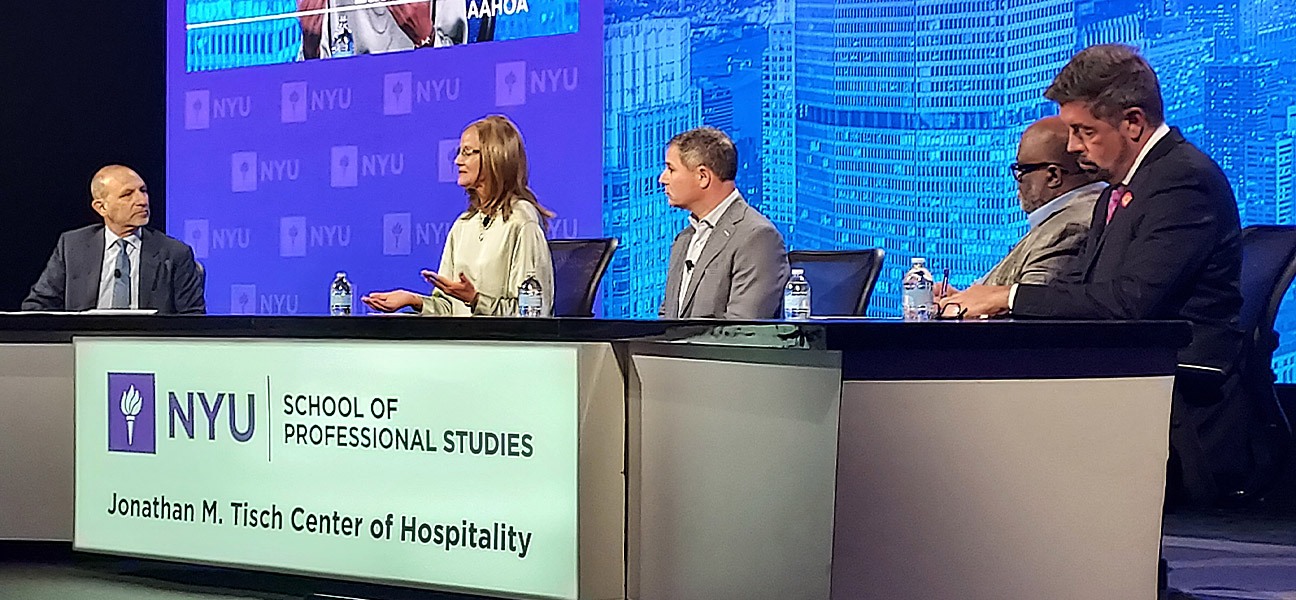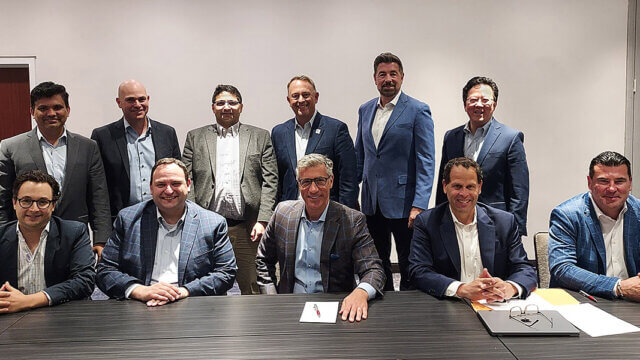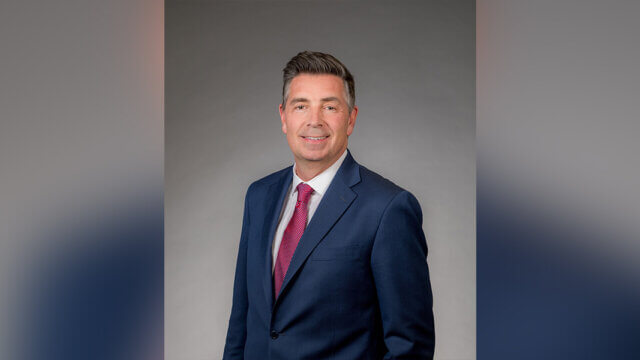Association leaders offered their thoughts on what needs to be done to keep travel on the right track at the 45th annual NYU International Hospitality Industry Investment Conference, held at the New York Marriott Marquis.
During the Policy Update session, Jeffrey Stewart, conference vice chair and founder/president, Walnut Hill Advisors, was joined by Laura Lee Blake, president/CEO, AAHOA; Geoff Freeman, president/CEO, U.S. Travel Association; Andy Ingraham, president/founder/CEO, National Association of Black Hotel Owners, Operators and Developers (NABHOOD); and Chip Rogers, president/CEO, American Hotel & Lodging Association (AHLA).
The lack of labor remains a big issue for hospitality, and Blake—who reported that 80% of her members’ hotels are understaffed—pointed to efforts that her association and others are making to encourage the government to allow more foreign temporary workers. “There are efforts that we’ve made on behalf of AAHOA in Washington, DC, to really get up the numbers for the H2B visas,” she said. “There are efforts being made in DC to look at even creating a new visa category for foreign workers that would be an H2C visa especially focused on the hospitality industry.”
Rogers noted there are ways to attract labor to the hospitality industry. “We [can] take more employees from other industries and that goes to telling the story [of the industry], and we are doing a lot of that in that area in the AHLA,” he said. “We’re spending millions of dollars to frame that story.”
But, he said, it is a difficult challenge because the workforce participation rate in the U.S. is near the bottom of the top 20 industrialized nations in the world. “Americans aren’t working like they used to, so we can fight and get a larger piece of the pie of the existing workforce—which is fairly stagnant—or we can expand the piee to add more people,” said Rogers.
He said there are two ways to do that: “[Bringing in] more workers coming into the U.S. from a guest workers’ perspective, and we know works—or significant immigration reform, which is going to bring in people on a permanent basis.” He added, “We can all agree that getting that since, frankly, the Bill Clinton administration, getting that immigration reform is very difficult and elusive.”
AHLA is doing a lot to help the labor situation, including working with the government to shorten the amount of time that asylum seekers can legally begin looking for a job from six months to one month.
The association is also working for legislation that would not count workers returning on a guest work visa against the 65,000 worker cap. “The administration can double it each year, which they do, but that is statutorily as far as they can go,” said Rogers. “So exempting those returning workers is extremely beneficial.”
Beyond guest workers, Ingraham said that it is also important that the industry attract people who may never have thought of hospitality as a career. “We’ve got to do a better job of attracting more minorities,” he said. “We’ve got to do a better job of making sure we have more upward mobility. When we look at the greatest industry in the world, which is travel and tourism, we see really a lack of diversity at the top level. So many young people—many parents—typically shy away from the hospitality industry. That’s a real issue. We’ve got to make sure that young people, no matter what color they are, know that if they can join this industry at any level, they have the ability to go up.”
While some have complained that the industry has not done enough to attract and keep workers, Rogers said that it has. “I think we beat ourselves up too much,” he said. “I constantly hear that we have to do better, but we actually are doing better. The wages we are paying now have advanced 60% faster than the rest of the U.S. economy since the beginning of the pandemic.”
Another issue that is very important to the travel industry is the importance of international travel. While international travel has begun its return, visitors from countries that require visas have extremely long waits to have those visas processed. “A little over 40% of all travelers are required to get a visa,” said Freeman. “Wait times in Brazil, India, Mexico and Colombia right now—just to get an interview for that visa—exceeds 500 days and, in some cases, 800 days. At the same time we are doing that, parts of the EU are waiving the visa requirement for Brazilians. Others are seeing the shortcomings in this space and they recognize an opportunity to compete.”
He said that the State Department has been slow to fix the problem. “They are beginning to change their tone,” he said. “The pressure from Capitol Hill and the industry is extreme. They are beginning to work through that backlog. They too have a shortage of workers, but they have a shortage of ingenuity. We’re beginning to see some breakthroughs on that front, but we’re at least a year out from seeing a real reduction in wait times.”


